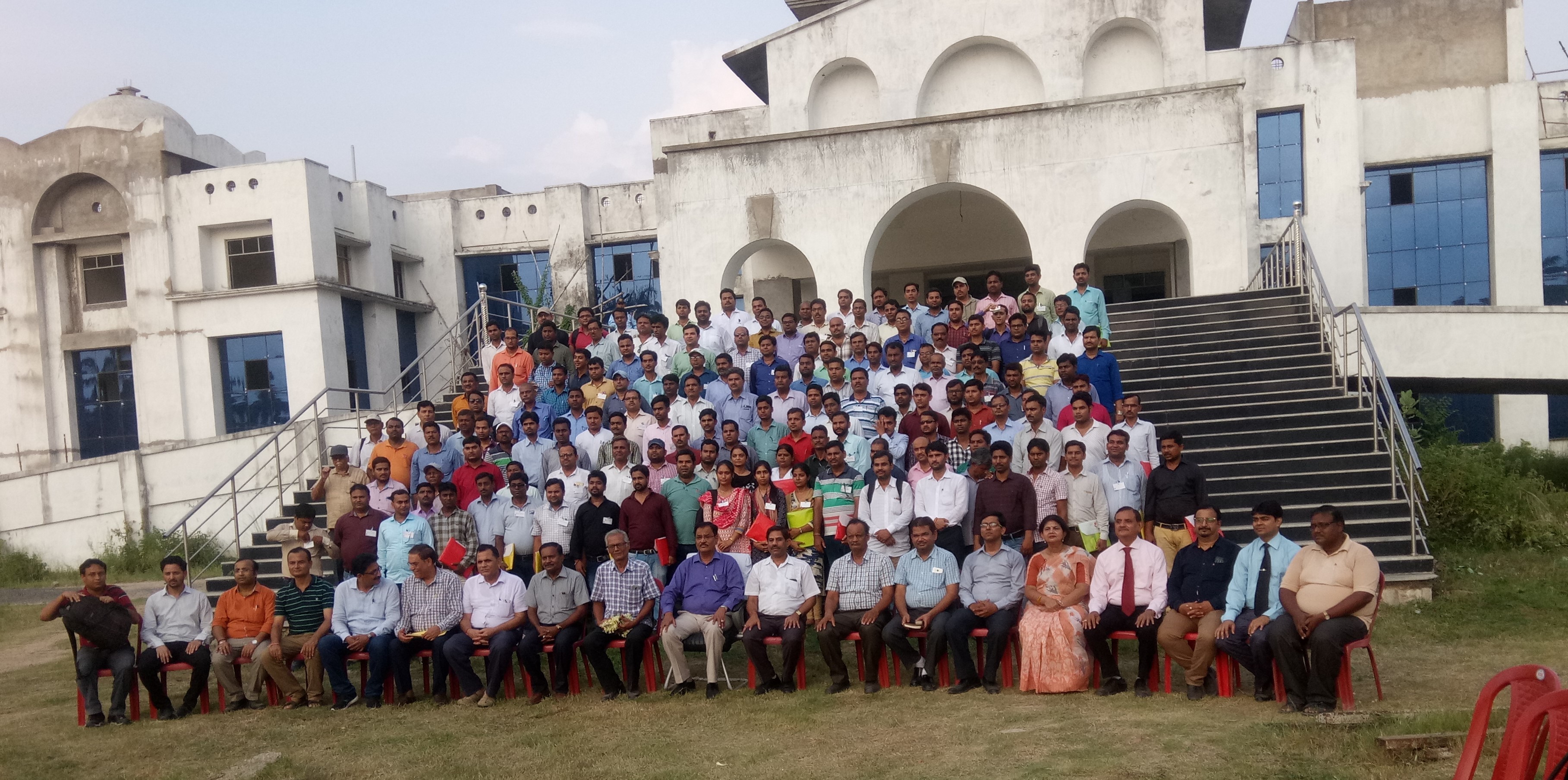Agriculture and allied sector has been the primary source of employment for millions in India. However, enabling and sustaining livelihoods through this industry is fraught with many challenges due to its diversity and informality. In this Skill Talk, Dr. Satender Arya, CEO, Agriculture Skill Council of India (ASCI), provides an account of current initiatives and key focus areas that are on the roadmap of ASCI in their journey towards transforming Indian agriculture through skill development and capacity building. Let’s read on…
Present initiatives and focus areas
At present we are keenly focused on 3 areas: One, our efforts are directed at getting all the stakeholders on board and align their training programs with our skilling framework and standards. In addition to the industry and academia, we are also working with organizations like NABARD to explore how loan disbursement through Grameen Banks could be linked with NSQF compliant skills certificates at cheaper credit rates. This is aimed at supporting Agri-Entrepreneurs / Agripreneurs.
Besides, skilling at NSQF Level 5 to 7 for various job roles is also a priority for training supervisory level workforce. B.Voc is another area where we are working with academic institutions to align their programs with the industry focused Qualification Packs (QPs) and National Occupational Standards (NOS) in agriculture and allied sector. Click here to know about the B.Voc courses offered in Agriculture Sector.
Two, we are organizing ‘job melas’ (job fairs) in different regions to connect youth with the industry and show them employment opportunities in this sector.
Three, we are promoting apprenticeships, wherever possible. Though there is limited scope in our sector for formal apprenticeships, we have identified few job roles in Horticulture and Farm Mechanization segment for introducing work-integrated learning and adoption of National Apprenticeship Promotion Scheme (NAPS). Going forward, we will also look into hitherto unexplored areas for apprenticeships.
All the above-mentioned initiatives are at various stages of implementation and we have successfully managed to get many institutions on board.
 Significance of Training of Trainers (ToT) in Agriculture and Allied Sectors
Significance of Training of Trainers (ToT) in Agriculture and Allied Sectors
For quality training, one of the critical quality control factors is the supply of quality trainers. Trainers accomplish an important role in upgrading the skills of the workforce and learners to meet technological changes and challenges at the workplace. The current scenario of trainers in skilling eco-system falls significantly short of the growing demand for skills training.
To cater to huge numbers, we are working with various agricultural universities to leverage their expertise and infrastructure. Domain skills training is imparted by the certified Master Trainers of university and we also utilize their existing infrastructure by putting it to optimal use. In the last 6 months, we have conducted ToT/ToMT for more than 1000 participants.
Supporting Agripreneurs
Through our CSR activities, we have started a small pilot project- a financial advisory program for budding Agripreneurs. In this program, we teach them fundamentals of running a startup such as calculating their inputs, product pricing, market study, B:C ratio and so on. We are also involved in showcasing the best technology/practices to the prospective Agripreneurs. As a part of this effort, we take the fishermen to Central Institute Fisheries Technology, Kochi and showcase them the latest technologies/practices in the fishery sector. We are also working with farmers in Bengaluru, where we take them to Escorts company and showcase them the latest technologies in Farm mechanization.
Recognition of Prior Learning (RPL) and RPL4
Recognition of Prior Learning (RPL) is a big enabler in the informal sector. In fact, it has more relevance to Agriculture sector since most farmers have inherited skills through generations and have not undergone any sort of formal training. Moreover, RPL can help identify the upskilling needs of the farmers. In such cases, we address their skill gaps by conducting an RPL – Bridge training. For example, in Maharashtra we have successfully conducted RPL – Bridge training for the job role “Group Farming Practitioner” which helped the farmers to learn how to work in teams, strategies for aggregation, understand market demand for their produce and other aspects of group farming.
RPL 4 which ensures certification of skills available in the organized sector with best in class employers has limited scope in an unorganized sector like agriculture. It may work for Poultry sector or Farm Machinery which are semi-organized. However, the challenge with RPL 4 is to get the commitment of the industry personnel for their time and resources.
Vocational education at school level
At the school level, vocationalisation has helped create awareness about the agriculture sector in a significant manner. Till date, Agriculture courses have been taken up in 977 schools across 15 states and the numbers are increasing every year reflecting the popularity of agriculture trade among school children. The hands-on feeling exercise in Agriculture inculcates the everlasting interest and entrepreneurial skills in students and seeing the immense opportunities for Agripreneurs and agribusiness professionals, schools are also coming up for the same, promoting the critical importance of the sector across the society.
Simultaneously, we have started the vocationalisation in private schools of Gujarat and Maharashtra as pilot in 2017-18. Over 600 students of 21 schools have taken up agriculture as vocational course and the results were quite appreciable.
Agriculture trade is an amalgam of self-employment and wage employment type of job roles and it is always advised to encourage the trade among school children and society so that they can understand the importance and essentiality of the sector and come forward for adoption of the same.
Overcoming challenges in training and infrastructure
Agriculture sector can be considered as the best example for informal sector skill development. It comes with many challenges. One of the challenges is the desired demonstration facility. Since agriculture training cannot happen within the confines of a room, we require a demonstration facility for practical training. The Training Partners are more attracted to collaborate for job roles that don’t need large space for practical training and thus, we face difficulty in getting credible training partners. Another challenge is to get industry cooperation for conducting practical sessions. These are typical constraints that affect practical exposure. The government has been considerate in acknowledging these limitations, particularly in rural training centers that remain short of getting rated as 5 star facilities as per government norms.
Impact of latest technologies
It’s true that latest technologies are impacting agriculture in many ways and Industry 4.0 is bringing its own changes through smart devices for farming. Nevertheless, in this sector it may not take away jobs or pose a similar threat as in other sectors like IT-ITES since agriculture industry is extremely diverse and fragmented. But, definitely, we need the new competencies focused on handling new technologies for improving the productivity and sustainability of the sector.














Comments 1